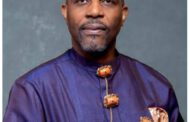Vice-President Oluyemi Osinbajo, a professor of Law, is generally perceived as a thoroughgoing liberal and democrat. He is further observed as a man of great personal independence. Believed to be possessed of a rare combination of humour, wit, an urbane disposition and honest intellect, Osinbajo’s nomination for the office of Vice President in 2015 did not ruffle any feathers or provoke any rabid opposition. It was imagined as a refreshing counterpoise to Buhari’s feared provincialism, conservatism, insipidity or grave taciturnity. Some recent manifestations in south-west Nigeria have however cautioned the people of the geo-political zone not to be too vain or lavish with their easily–agreeable spirit of tolerance or accommodation. The happenings have also tended to rob Osinbajo of the people’s bon hommie and their perception of his nuanced liberalism. The people are of the view that he is fast losing the attribute for which he was admired. They think he is, for some inexplicable reason, more interested in being politically correct than being truthful even in the face of cold realism.
Times New Roman in a recent engagement with young Nigerians in the diaspora, Osinbajo, while responding to enquiries regarding the frenzied spate of killings, kidnappings and abductions in Nigeria, was quoted as informing his audience that the reports were exaggerated even as many of the instances were fake or made up. According to Osinbajo, the supposed happenings emanated from the fertile imagination of some mischief-makers. Alarmed, his audience listened in bemused attention wondering if they were at the true or advertised venue of the meeting. They reeled in disbelief. The audience’s view of Osinbajo as one trained to profess truth, to proclaim the doctrine of obedience to law, of governmental honesty, national fair dealing and of political courage crashed or nose-dived. Osinbajo himself stood transfixed on the podium visibly swirling in self-doubt. The Vice President revealed that he had personally investigated and found as fictive some of the claims of the supposed abductees. The media reports were projected to embarrass the government and bring it to disrepute, he concluded.
Osinbajo’s audience is however 21st century information technology savvy regarding information sourcing, its dissemination and analyses. The analytical tools available to today’s media information consumers (particularly those living outside of societies of simple technologies) were probably taken for granted by Osinbajo. Nigerians living abroad or in far-flung countries ironically have easier access to news reports concerning affairs and events in Nigeria than their folks back home.
A government whose promised strides have been hobbled or humbled nationwide by the insouciant activities of kidnappers, terrorists, bandits, herdsmen militia, armed robbers, etc and by its own debilitating desultory and self-indulgent trajectory has no reason to make light the effect or consequences of a blistering national siege. Citizens are encouraged when the people in authority over their affairs are honest or sincere regarding the enormity of the challenges or of their incapacitation to confront them. It is dishonest to give or paint a picture of ease or convenience in a situation of war. The purpose of intellectual interests, their pursuit and ultimate attainment is not to re-enforce or hone the mind of their possessor. It is to liberate it. We discern that Osinbajo’s attachment to the received wisdom of his early years is so strong even as his belief in fixed principles appears iron-cast. There is however a requirement to move beyond the fundamentals of an early dogmatic training.
Osinbajo has, for instance, refused to speak tolerantly, much less understandingly of the fervent desire of his people for the political restructuring of the Nigerian federation. For the people, the practice of true federalism accompanied by all its attendant incidents is an article of faith. But Osinbajo has said, almost parenthetically, that political restructuring is inferior to the requirement to establish the mechanism for the formal basis for “the ease of doing business in Nigeria” or of the desideratum of creating national wealth. This probably is understandable as he, as Vice President, is the chairman of the National Economic Council. However, the pressures of social and political change far outweigh the intendment or ratio-decidendi of Osinbajo’s Adam Smithian economic orthodoxy and of his political laissez-fare attitude. Both have visibly inhibited his proper conception of the potential and real value of a true federal state particularly in a situation of a pervasive objective tension.
The truth-value or otherwise of the putative exaggeration of the security situation in Nigeria was brought poignantly home to everybody, particularly to the authorities recently. A pastor attending the annual convention of the Redeemed Christian Church of God was accosted in the company of other passengers and kidnapped in Ogun State. They were graciously rescued by the swift intervention of the police and the acuity or good sense of the church administration. The event is particularly notable as the faith-based organisation in question is the episcopal constituency of Osinbajo, he being a pastor thereat. Further, as the dastardly act occurred in the dense rain forests of his native Ogun State, his sense of grief is understandably personal and immediate. It may not be instantly relieved. The burden for him is multiple, his anguish unspeakable. The experience of all those who have been directly affected by the current undeniable state of anomie is truly not an exaggeration or “fabu”.
Truth, it is said, has no duplicate. Its ornate or garnished form does not exist. No amount of tar brushing can rob it of its essence or character. Our people say lying, or more appropriately, lie- telling may survive for a while but truth is epiphanic; it will suddenly burst on our eyes or on our consciousness. Every eye shall see it and every tongue shall confess it is the truth.
•Rotimi-John, a lawyer and public affairs commentator, wrote from Abuja.













